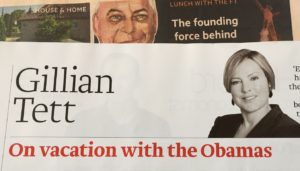Further to John Cassidy’s musings about what Trump is up to, this NYT OpEd by Neal Gabler is interesting:
People run for the presidency for all sorts of reasons. But Donald J. Trump may be the first to run because he sees a presidential campaign as the best way to attract attention to himself. There seems to be no other driving passion in him, certainly not the passion to govern.
He isn’t an ideologue like Ted Cruz, an opportunist like Marco Rubio, a movement builder like Bernie Sanders, a political legatee like Jeb Bush or a policy wonk like Hillary Clinton. For all of them — for any serious candidate — attention is a byproduct of a campaign, not its engine. For Mr. Trump, attention is the whole shebang.
That may be the lesson of his campaign “shake up” earlier this week. The shift is from politics to grabbing attention, and, quite possibly, from winning the election to winning the defeat, which is how he has spent practically his entire career…
Fascinating. Might mean that those of us who are watching the campaign as though it’s about ‘politics’ might be being naive!


